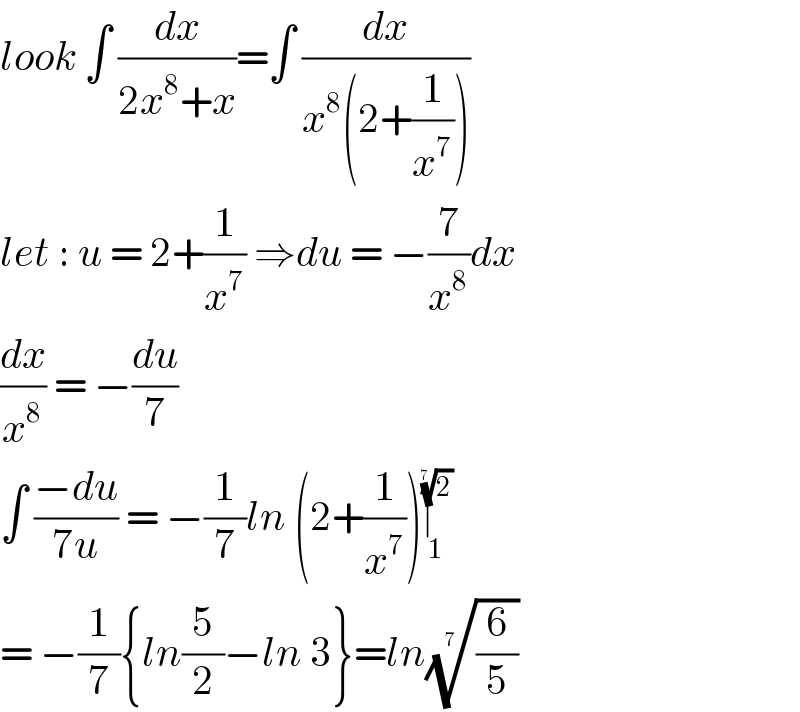
Question and Answers Forum
Question Number 79452 by Vishal Sharma last updated on 25/Jan/20

Commented by john santu last updated on 25/Jan/20

Answered by mind is power last updated on 25/Jan/20

| ||
Question and Answers Forum | ||
Question Number 79452 by Vishal Sharma last updated on 25/Jan/20 | ||
 | ||
Commented by john santu last updated on 25/Jan/20 | ||
 | ||
Answered by mind is power last updated on 25/Jan/20 | ||
 | ||
| ||